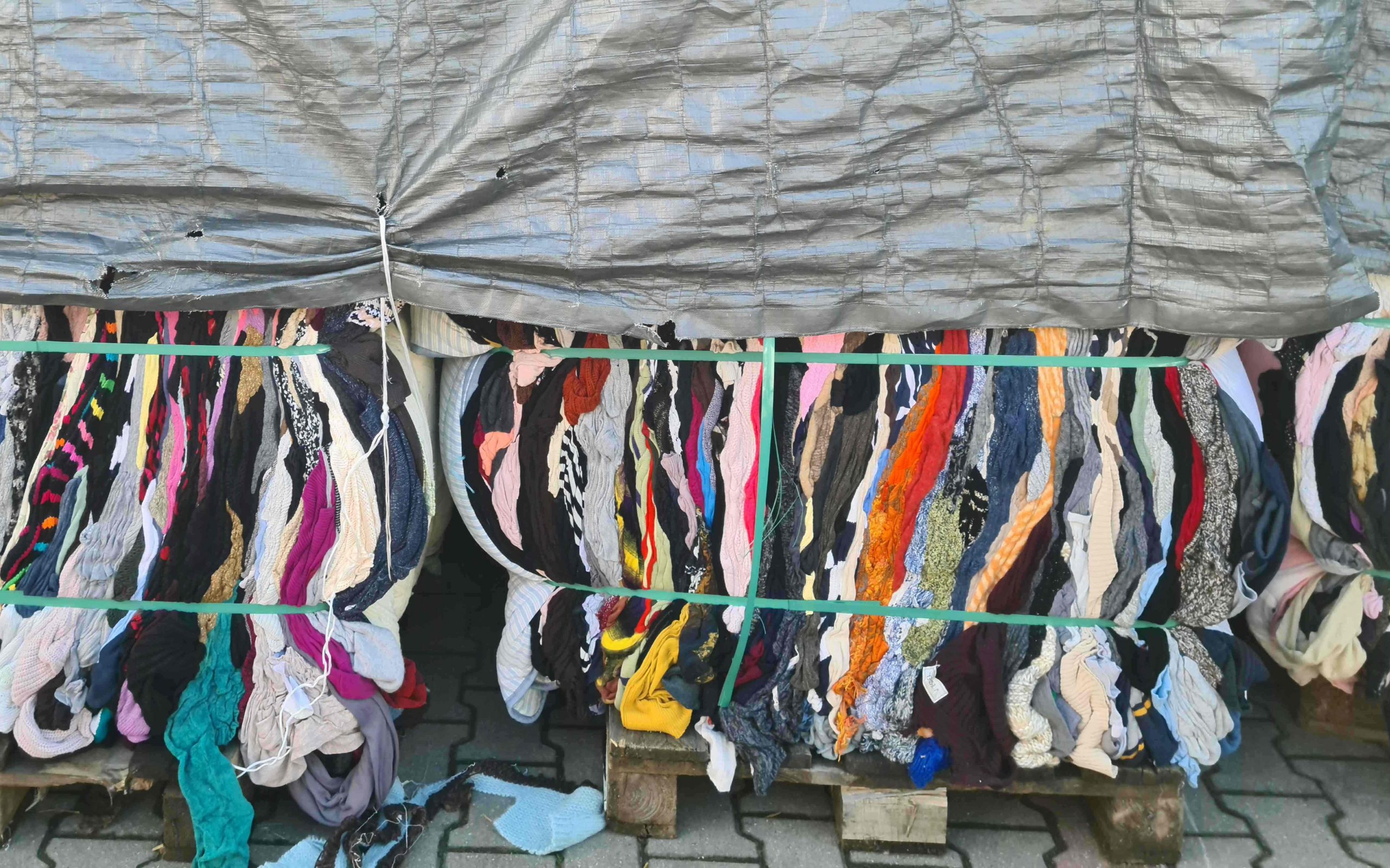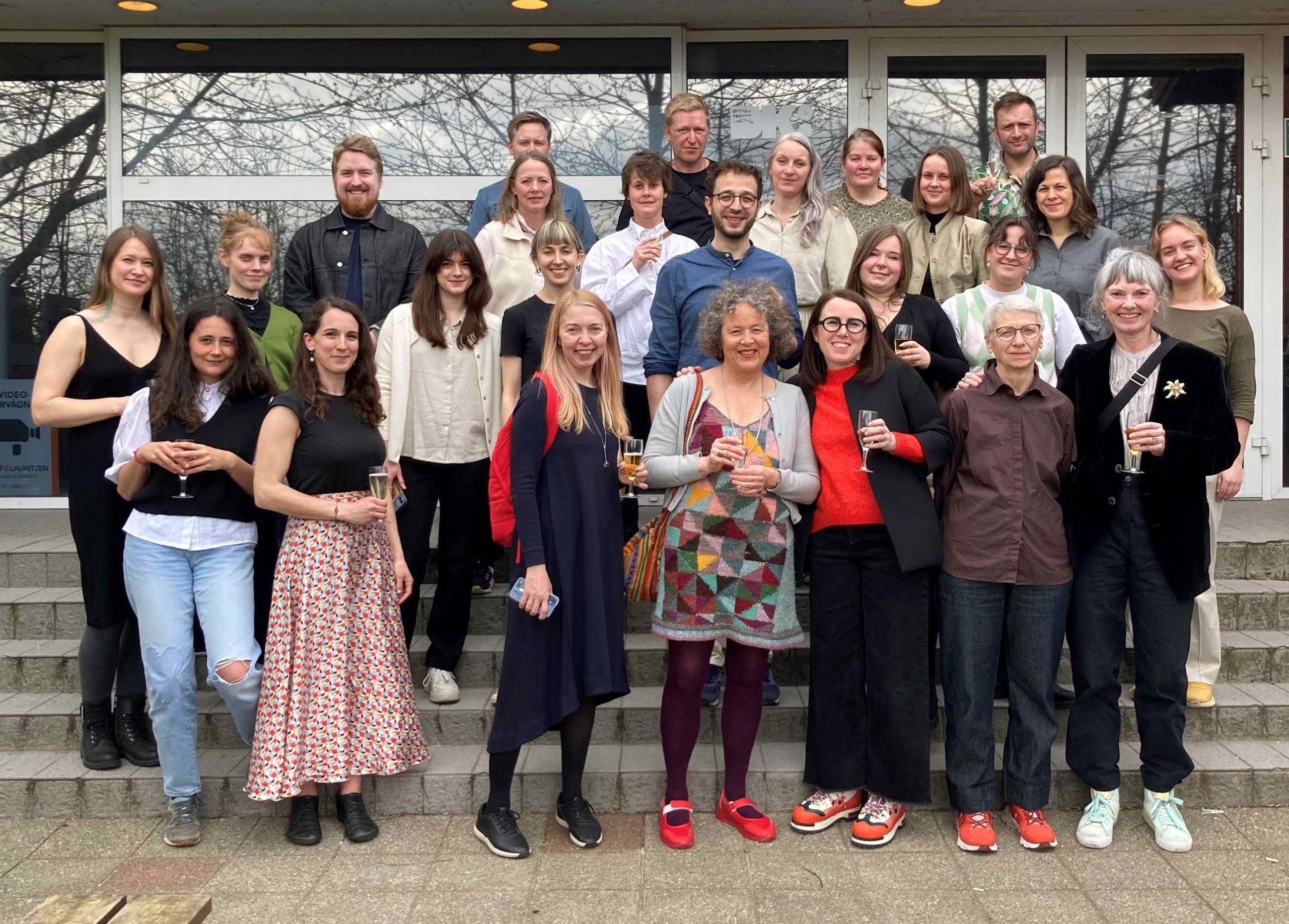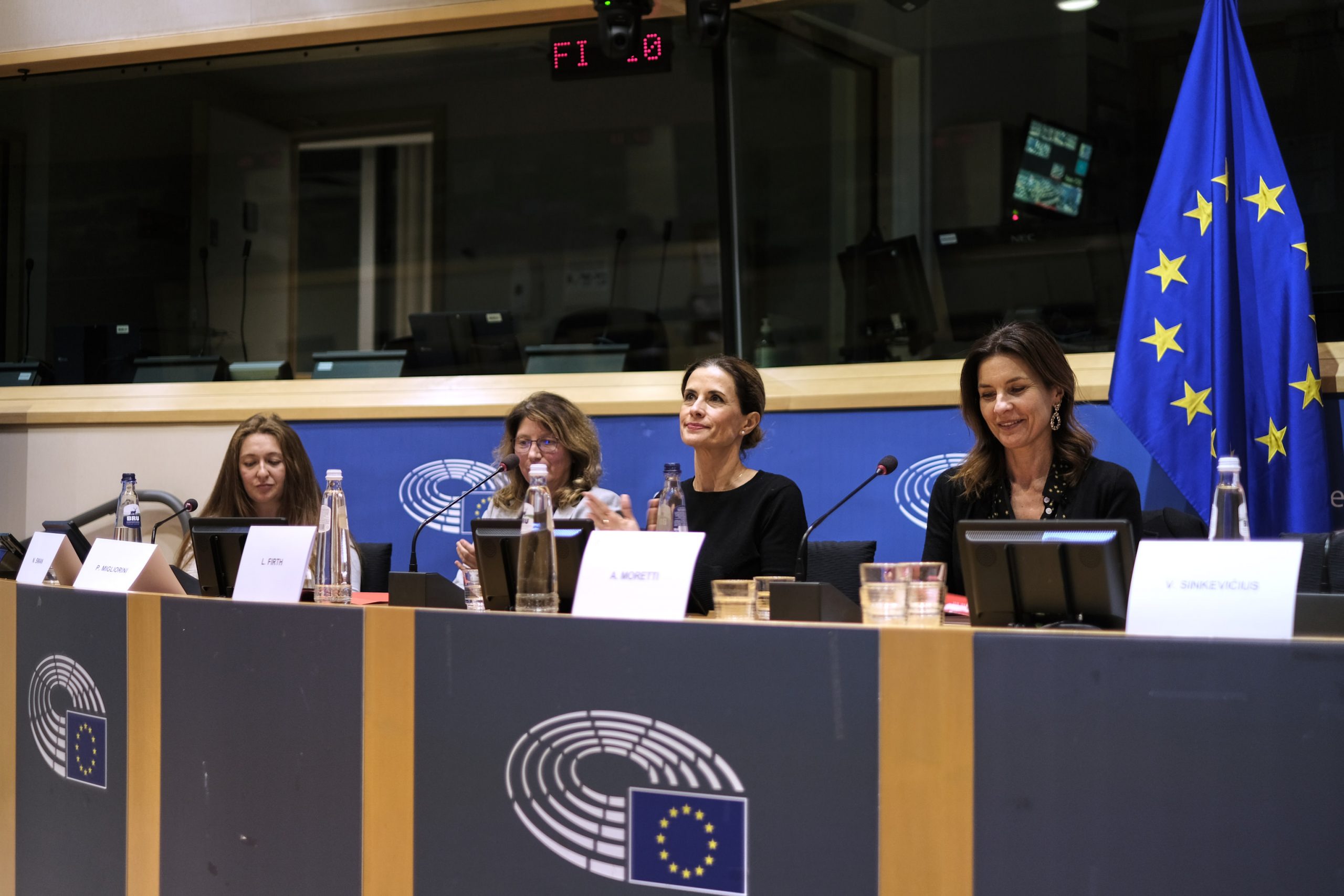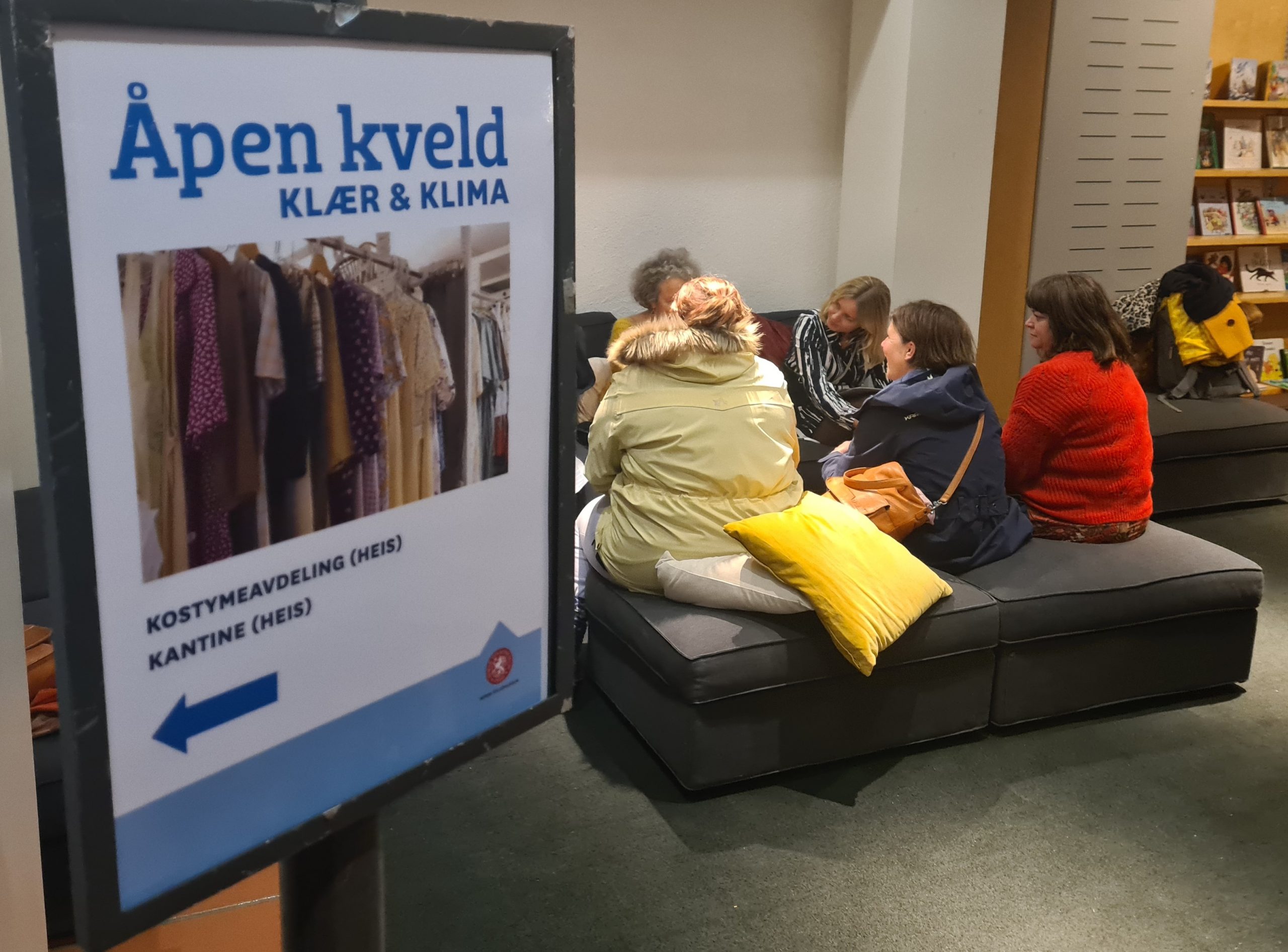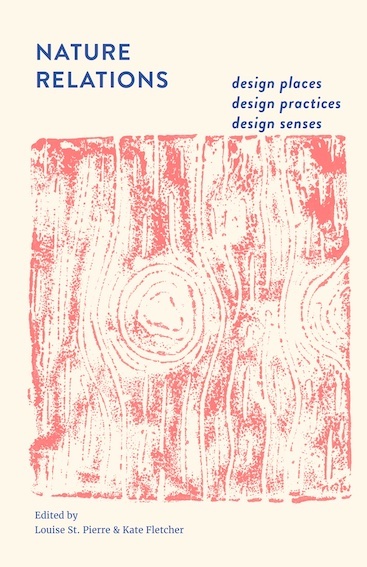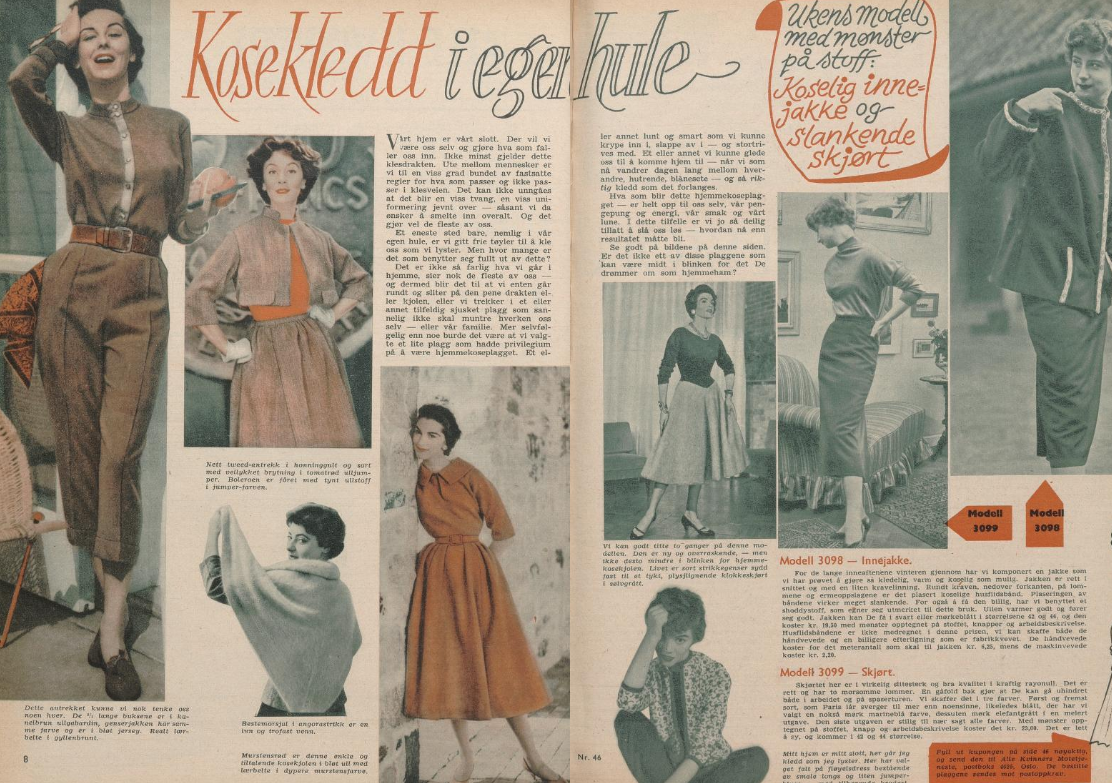CHANGE
Environmental systems shift in clothing consumption
In CHANGE, we will investigate what is most essential to reduce the environmental impact of clothing: reduce the amount of clothing that is produced, acquired and disposed of.
Environmental impacts from the clothing sector have increased rapidly within the last 30 years, with clothing consumption as an important driver due to the large volumes of clothing that are produced, used and disposed of. Yet, research on clothing consumption, and knowledge of how clothing is used and how this affects the total volume of clothing, is limited. In CHANGE, we will investigate what is most essential to reduce the environmental impact of clothing: reduce the amount of clothing that is produced, acquired and disposed of.
CHANGE will concentrate on two important elements in clothing consumption. One is to be properly dressed for the occasion, and the other is clothing standards related to the expectation of variety of garments. Where do these ideas come from? And how have they shaped our clothing habits over the last 200 years? We will look at why and how we change clothes between different occasions and the expectation and desire for variety of garments. The project objective is to improve our knowledge of how clothing volumes can be reduced by increasing the understanding of how people use clothing and how this has developed over time. The project will mainly study Norwegian clothing consumption through quantitative and qualitative wardrobe studies of couples. These will contrast with other wardrobe studies in and outside Europe. By looking at the connection between the individual consumer’s practices and different clothing standards, and the consequences this has on an overall level, we will contribute with knowledge and theoretical concepts that bring consumption – the use of clothing – into debates and politics about clothing and the environment.
The project has been awarded 12 million from the funding scheme Ground-breaking research (FRIPRO) from the Research Council of Norway, from July 2021-2025. Project leader is Ingun Grimstad Klepp from Consumption Research Norway SIFO, OsloMet. Also from SIFO is senior researcher Kirsi Laitala and PhD student. Irene Maldini from Amsterdam University of Applied Sciences brings in methodological and empirical expertise in wardrobes in the Netherlands and Uruguay. The latter with Lucrecia de Léon from the Universidad de la República. Kate Fletcher from the Center for Sustainable Fashion at UAL brings an outside perspective where change at the system level is discussed. Else Skjold from the Royal Danish Academy of Fine Arts takes responsibility for a network of students and researchers together with Liudmilla Aliabieva from Moscow University. Bjørn Sverre Hol Hagen from UiO / Anno Museum and Marie Ulväng from Stockholm University will add their historical dimension to the project, while Tone Skårdal Tobiasson will be responsible for dissemination and network building.
Participants at SIFO
- Ingun Grimstad Klepp
- Kirsi Laitala
- Vilde Haugrønning
- Ingrid Haugsrud
External Participants
- Irene Maldini, Amsterdam University of Applied Sciences
- Lucrecia de Léon, Universidad de la República
- Kate Fletcher, Royal Danish Academy of Fine Arts
- Else Skjold, Royal Danish Academy of Fine Arts
- Liudmilla Aliabieva, Moscow University
- Bjørn Sverre Hol Hagen, UiO / Norsk Folkemuseum
- Marie Ulväng, Stockholm University
- Tone Skårdal Tobiasson
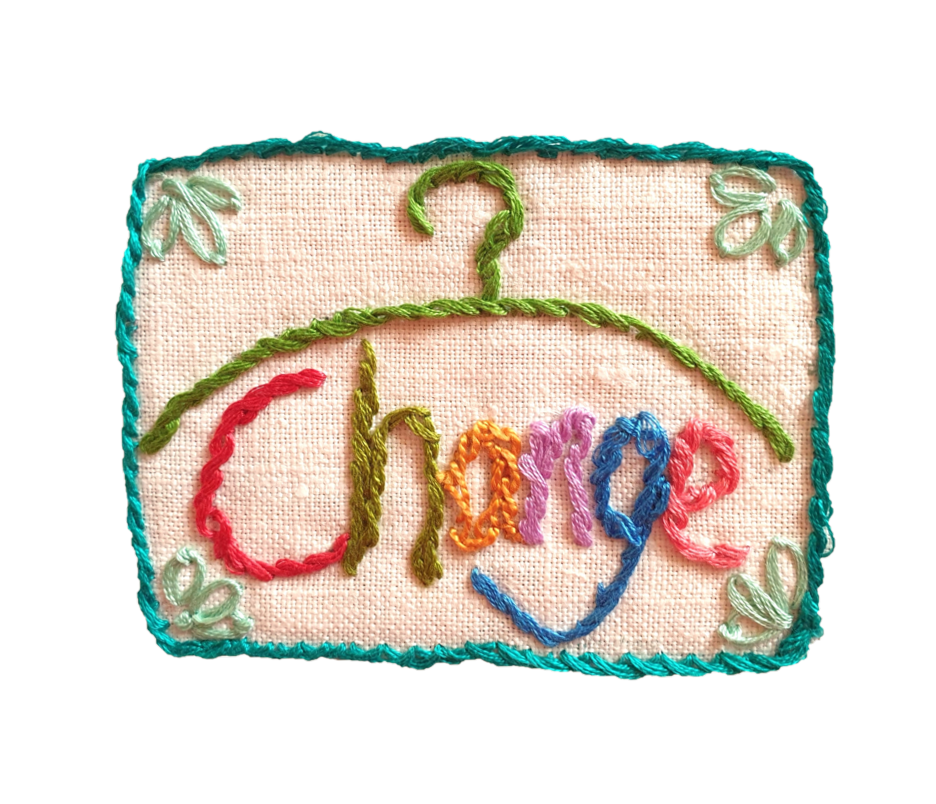
Feedback delivered on ESPR 1st milestone
EU’s Joint Research Center (JRC) has asked for contributions to the survey ‘Comments to the working document: Preparatory study on textiles for product policy instruments – 1st milestone’. During March 18th – 19th, the JRC and registered stakeholders attended the online consultation about the 1st milestone of the preparatory study on textile products. This is the second…
A day worth marking for clothing research
April 8th, 2024, Iryna Kucher defended her PhD “Designing Engagements with Mending. An Exploration of Amateur Clothing Repair: Practices in Western and Post-Soviet contexts”. Iryna was a guest lecturer at Consumption Research Norway SIFO a period as research fellow, she has used wardrobe studies as a method and Ingun was her first opponent. This was…
Fashionscapes for Transformation: EU addresses plastification and a just transition
The main point made during EcoAge and MEP Alessandra Moretti’s joint event in the EU Parliament was to link the increased plastification in the fashion sector with social injustice upstream and downstream in the value-chain. Livia Firth, founder of EcoAge and moderator of Fashionscapes for Transformation, has relentlessly these last months hammered in the point that…
Continue Reading Fashionscapes for Transformation: EU addresses plastification and a just transition
Removing the silk gloves and pulling a (historic) punch
Wardrobe and Climate was the over-arching theme for a CHANGE event at the Norwegian Folk Museum.
Continue Reading Removing the silk gloves and pulling a (historic) punch
Exploring design and nature
A new, limited-edition publication, edited by Kate Fletcher, Research Professor at SIFO, and Louise St. Pierre, Associate Professor at Emily Carr University in Vancouver, has been published, exploring design places, practices and senses – all in the context of how we relate to nature. According to the book-blurb, Nature Relations (Occasional Press, 2023) explores light,…
Unused resources for CHANGE: Fashion, history and sustainability
Hybrid seminar Thursday November 9th, 2023, 2:30-4:00 PM
Continue Reading Unused resources for CHANGE: Fashion, history and sustainability
